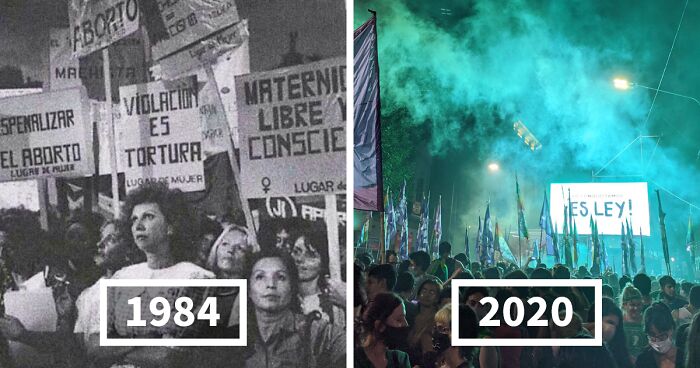
After 40 Years Of Debates And Demonstrations, Argentina’s Senate Finally Approves Historic Bill To Legalize Abortion
The events that took place in Argentina on the 30th on December finally proved that the year 2020 wasn’t so bad after all. Yesterday, after decades and decades of debates, fights, and struggle, Argentina’s Senate has finally approved the historic bill to legalize abortion up to the 14th week of pregnancy.
After a 12-hour debate, senators approved the law with 38 members voting in favor, 29 against, and 1 abstention. To celebrate the historic moment, thousands of pro-choice activists went to the streets of Buenos Aires waving green flags and wearing green handkerchiefs—the symbol of the movement.
On December 30, thousands of pro-choice activists in Argentina went to the streets to celebrate the new law being approved
Image credits: ethereaIgoode
Image credits: bloodlineloves
Before the historic day, abortion has been considered a crime in Argentina ever since the late 19th century. In 1922, the penal code was amended to allow abortion in three contexts. Abortion could be performed legally by a certified doctor if the pregnant woman’s life or health was in danger, the pregnancy was the result of a rape, and if the pregnant woman was mentally disabled.
After a 12-hour debate, senators passed the bill with 38 members voting in favor and 29 against
Image credits: L0VESNY
During the 1976-83 military dictatorship, the penal code was changed once again and included further restrictions. Finally, in 1984, the provisions on abortion came back to the 1922 wording with one “subtle” change. Now, there were only two contexts in which abortion was allowed to be performed legally: if the pregnant woman’s life or health is in danger or if the pregnancy is the result of the rape of a mentally disabled woman.
Abortion’s been considered a crime in Argentina ever since the late 19th century
Image credits: franchuv17
The penal code’s section on abortion hadn’t changed since 1984—until yesterday. According to the previous law, anyone who induced abortion could be punished with 1 to 15 years of prison. The same penalty would be imposed on doctors, surgeons, midwives, and pharmacists that performed or cooperated in the induction of abortion.
In 1922, the provision of abortion was changed, allowing it if the mother’s health is in danger or if the pregnancy is the result of the rape of a mentally disabled woman
Image credits: KU Leuven Feminist Society
After the Argentine general election of 1983 marking the return of the constitutional rule, we can notice a significant surge of the feminist movement in the country of Argentina.
March 8, 1984 marks the first-ever International Women’s Day demonstrations since the end of the military regime. The most iconic moment of the event was when the activist named María Elena Oddone climbed up the stairs of the Monument of the Two Congresses and raised a sign that read “No to motherhood, yes to pleasure.”
Image credits: PatricioSimone2
The feminism of the 2000s and 2010s is considered to be one of the largest women’s movements in Latin American history. One of the issues that the modern wave of feminism had been focusing on was legal and safe abortions in the country. This activism is often referred to as “the revolution of the daughters” (Spanish: la revolución de las hijas), which is a term used by journalist Luciana Peker.
One of the main issues modern feminism in Argentina has been focusing on is legal and safe abortions
Image credits: ethereaIgoode
These past decades, many pro-choice meetings and demonstrations have taken place in Argentina. Of course, the journey has been full of struggles since Latin America remains highly influenced by the Catholic Church, which defends life from the moment of conception.
In 2018, Argentine Congress began working towards a draft project to legalize abortion, and later that year, the Chamber of Deputies gave preliminary approval to the law with 129 votes in favor, 125 against, and 1 abstention. However, later that year, the law was rejected by the Senate.
Despite being illegal, around 5.4 million abortions occur every year in Latin America
Image credits: Prof_Sav
Fast forward to December 30, 2020, the Senate voted once again and finally passed the bill into law. In addition, the Senate also voted in favor of a law which will provide better healthcare for pregnant women and mothers of young kids.
“Safe, legal, and free abortion is now law… Today we are a better society,” the president of Argentina, Alberto Fernández, wrote in a Twitter post after the results were announced. The president has talked a lot about the legalization of abortion during all of his presidency.
“Today we are a better society,” the president of Argentina Alberto Fernández wrote in a Twitter post
Image credits: BBCNews
Image credits: habitgolden_
According to Guttmacher Institute, despite being illegal, around 5.4 million abortions occurred every year in Latin America and the Caribbean between 2015 and 2019. In 2016, Human Rights Watch reported that more than 39,000 women and girls were hospitalized due to complications from abortions that year.
Most people seemed to be happy about the news
However, some people had different opinions
1k+views
Share on FacebookI couldn't agree with you more. If you just want to punish women, keep abortion illegal. This doesn't prevent it from happening. If you want to reduce the number of abortions, make it legal together with a coherent and strong sex-ed policy. Unfortunately, the countries where abortion is still illegal often don't have a good access to contraception either. Which means they're not "pro life", they are "pro uterus control"
Load More Replies...Reproductive justice for the women of Argentina!!! I heard on the news yesterday that 40,000 women a year were being hospitalized in Argentina due to back alley abortions. I'm so happy for the women of Argentina who now have body autonomy. To the women of Argentina - I am here cheering with you.
I’m a male, so I recognize that my opinion on abortion is irrelevant. I’m pleased that the will of the people won out.
an oldman once told me "i am a man, so i can not understand fully what a woman need or think. My opinion is just my opinion. Let her choose"
Load More Replies...Abortions will always happen no matter what illegal or not. As long as men can’t control themselves and women have birth control that fail unwanted pregnancies are going to happen. Would you rather them have the baby only to kill it or abandon it in the trash or would you rather them just have a safe abortion so they can move on with their lives. Let people choose their paths in life. Whether someone gets an abortion or not does not affect you at all.
People who are against abortion absolutely disgust me. They don't think that maybe a woman could get killed by giving birth to the baby. Maybe they didn't think about how a teenage girl who can't even get a job to support this baby is being forced to give birth to it because of these people. The worst part is that they say that a woman or girl has to give birth to a baby that needs tons of medical help and doesn't even give them any money whatsoever to care for this baby that they can not afford to take care of.
As a Christian, hell yes! (It's about time, too!)
Y’all are so sick to be celebrating that the murder of babies is legal.
Pro choice homie here! Here are some points: "If you don't want to become pregnant, abstain from sex." According to RAINN, 15% of sexual assaults target people aged 12-17. 54% target people 18-34. That is a large amount of people below the age of 34. Furthermore, 14.8% of women have experienced completed rape. RAINN articulates "females ages 16-19 are 4 times more likely than the general population to be victims of rape, attempted rape, or sexual assault." This clearly shows that many people can get pregnant even if they attempt to abstain. Source: https://www.rainn.org/statistics/victims-sexual-violence
Lantern Flies live in the tree and depend on the tree for survival. However, it hurts the tree and sometimes killed the tree. They are similar to fetuses, where they harm the body of the tree/carrier, and both could result in death of the host. People are told to kill Lantern Flies if they are on trees, because the tree is hurting. Is there a reason to protest that? Technically, it's not the Lantern Flies' fault that they need the tree. They don't have a choice, and the tree needs help to fight them. In conclusion, why protest abortion and not the extermination of Lantern Flies? ( Disclaimer: Abortion is not killing anything because the fetus is undeveloped. )
Load More Replies...Look. They just legalized the murder of Babies Abortion=Murder and should be illegal
Abortion will never be truly abolished as long as society continues to tolerate any form of artificial contraception and the contraceptive mentality in general. After all, abortion is the inevitable backup when those fail.
Those that see abortion as murder will want it to be illegal. Those who do not will want it to be legal and available. There really is no common ground.
There is. Don't have an abortion if you don't want to. That is the common ground
Load More Replies...WTF? If the fetus is not in the womb, either there's been a spontaneous abortion (medical term for miscarriage), or a pregnancy has ended in... a birth process. So what you describe (out of the mother) is INFANTICIDE. And, for the record, medical personnel will do anything possible to save a fetus in the third term of pregnancy, or prematurely born children.
Load More Replies..."Literally trillions of dollars set aside" - what a load of male bovine manure. The politicians who seek to outlaw or severely restrict abortion are nearly always the same ones who want to slash welfare, SNAP, WIC, etc. to the bone, if not eliminate them altogether. The same ones who oppose raising the minimum wage to a living wage. The same ones who consistently approve big tax breaks for the ultra-wealthy and big corporations. The same ones approving subsidies for the fossil-fuel industry. You apparently think that it's easy to get government help, and that private charities have mounds of money behind them. What planet do you live on, anyway?
Load More Replies...I couldn't agree with you more. If you just want to punish women, keep abortion illegal. This doesn't prevent it from happening. If you want to reduce the number of abortions, make it legal together with a coherent and strong sex-ed policy. Unfortunately, the countries where abortion is still illegal often don't have a good access to contraception either. Which means they're not "pro life", they are "pro uterus control"
Load More Replies...Reproductive justice for the women of Argentina!!! I heard on the news yesterday that 40,000 women a year were being hospitalized in Argentina due to back alley abortions. I'm so happy for the women of Argentina who now have body autonomy. To the women of Argentina - I am here cheering with you.
I’m a male, so I recognize that my opinion on abortion is irrelevant. I’m pleased that the will of the people won out.
an oldman once told me "i am a man, so i can not understand fully what a woman need or think. My opinion is just my opinion. Let her choose"
Load More Replies...Abortions will always happen no matter what illegal or not. As long as men can’t control themselves and women have birth control that fail unwanted pregnancies are going to happen. Would you rather them have the baby only to kill it or abandon it in the trash or would you rather them just have a safe abortion so they can move on with their lives. Let people choose their paths in life. Whether someone gets an abortion or not does not affect you at all.
People who are against abortion absolutely disgust me. They don't think that maybe a woman could get killed by giving birth to the baby. Maybe they didn't think about how a teenage girl who can't even get a job to support this baby is being forced to give birth to it because of these people. The worst part is that they say that a woman or girl has to give birth to a baby that needs tons of medical help and doesn't even give them any money whatsoever to care for this baby that they can not afford to take care of.
As a Christian, hell yes! (It's about time, too!)
Y’all are so sick to be celebrating that the murder of babies is legal.
Pro choice homie here! Here are some points: "If you don't want to become pregnant, abstain from sex." According to RAINN, 15% of sexual assaults target people aged 12-17. 54% target people 18-34. That is a large amount of people below the age of 34. Furthermore, 14.8% of women have experienced completed rape. RAINN articulates "females ages 16-19 are 4 times more likely than the general population to be victims of rape, attempted rape, or sexual assault." This clearly shows that many people can get pregnant even if they attempt to abstain. Source: https://www.rainn.org/statistics/victims-sexual-violence
Lantern Flies live in the tree and depend on the tree for survival. However, it hurts the tree and sometimes killed the tree. They are similar to fetuses, where they harm the body of the tree/carrier, and both could result in death of the host. People are told to kill Lantern Flies if they are on trees, because the tree is hurting. Is there a reason to protest that? Technically, it's not the Lantern Flies' fault that they need the tree. They don't have a choice, and the tree needs help to fight them. In conclusion, why protest abortion and not the extermination of Lantern Flies? ( Disclaimer: Abortion is not killing anything because the fetus is undeveloped. )
Load More Replies...Look. They just legalized the murder of Babies Abortion=Murder and should be illegal
Abortion will never be truly abolished as long as society continues to tolerate any form of artificial contraception and the contraceptive mentality in general. After all, abortion is the inevitable backup when those fail.
Those that see abortion as murder will want it to be illegal. Those who do not will want it to be legal and available. There really is no common ground.
There is. Don't have an abortion if you don't want to. That is the common ground
Load More Replies...WTF? If the fetus is not in the womb, either there's been a spontaneous abortion (medical term for miscarriage), or a pregnancy has ended in... a birth process. So what you describe (out of the mother) is INFANTICIDE. And, for the record, medical personnel will do anything possible to save a fetus in the third term of pregnancy, or prematurely born children.
Load More Replies..."Literally trillions of dollars set aside" - what a load of male bovine manure. The politicians who seek to outlaw or severely restrict abortion are nearly always the same ones who want to slash welfare, SNAP, WIC, etc. to the bone, if not eliminate them altogether. The same ones who oppose raising the minimum wage to a living wage. The same ones who consistently approve big tax breaks for the ultra-wealthy and big corporations. The same ones approving subsidies for the fossil-fuel industry. You apparently think that it's easy to get government help, and that private charities have mounds of money behind them. What planet do you live on, anyway?
Load More Replies...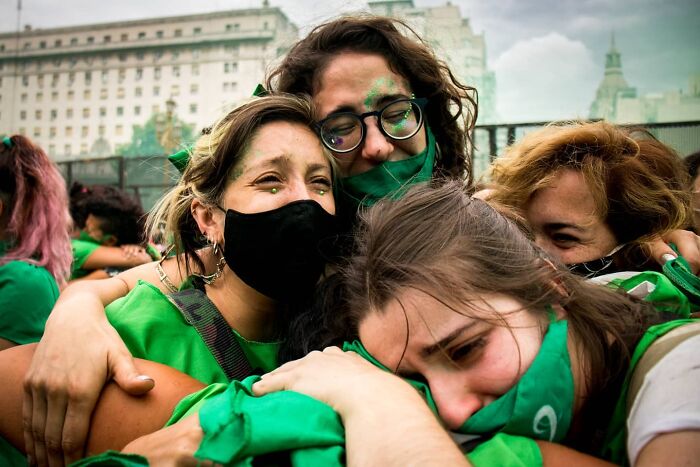
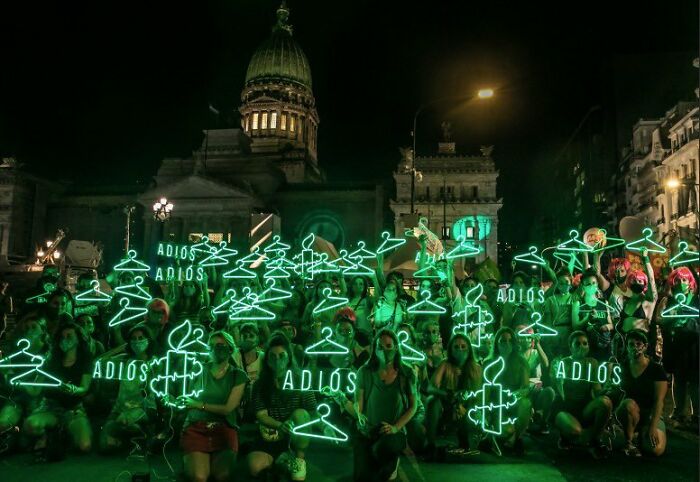
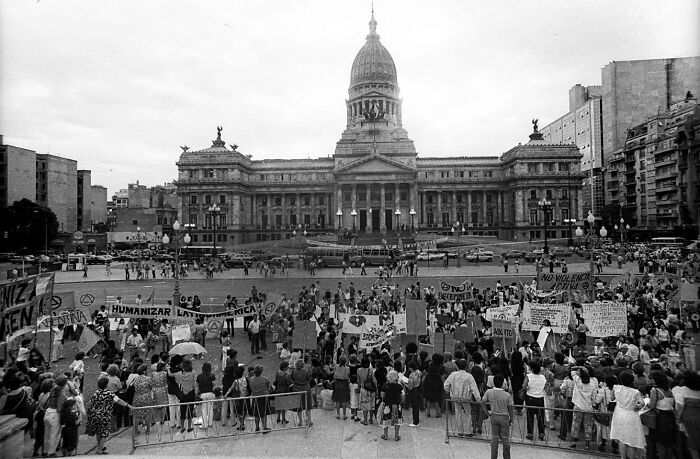
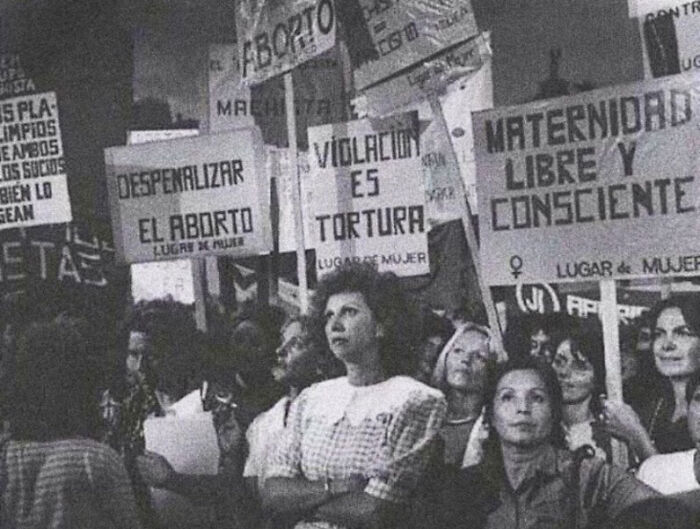
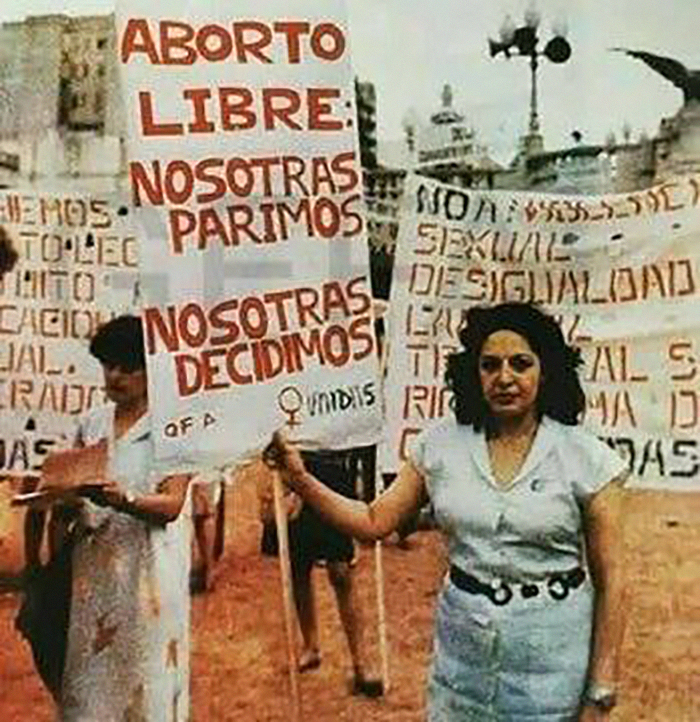
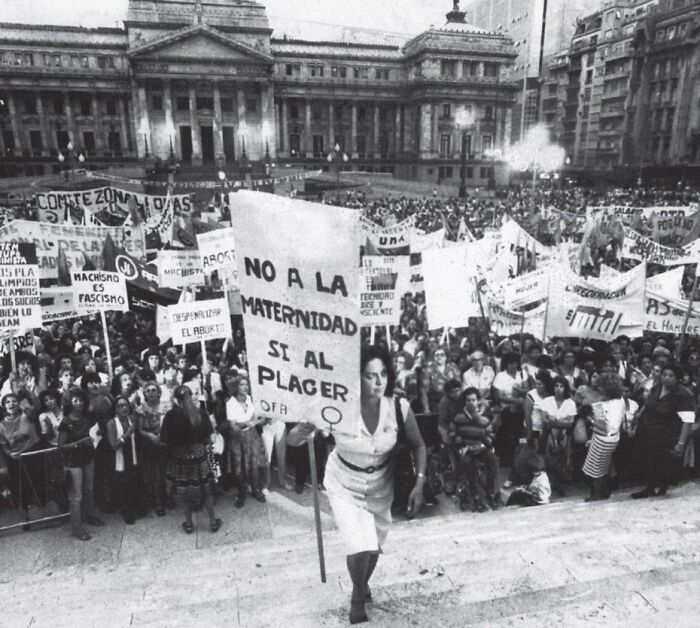
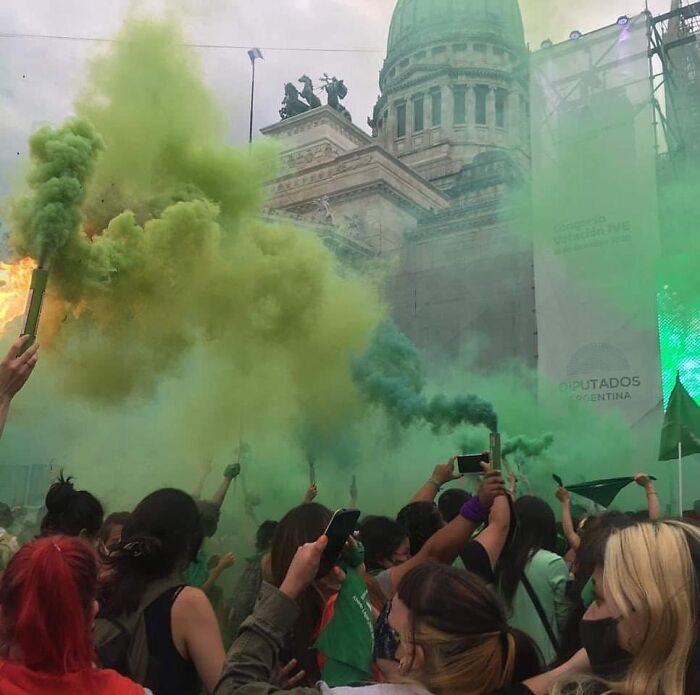

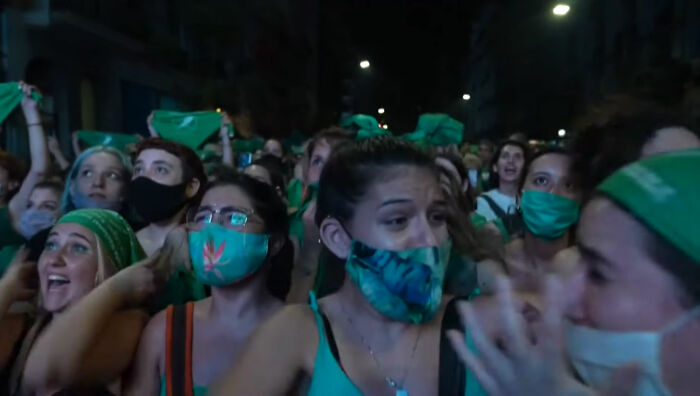
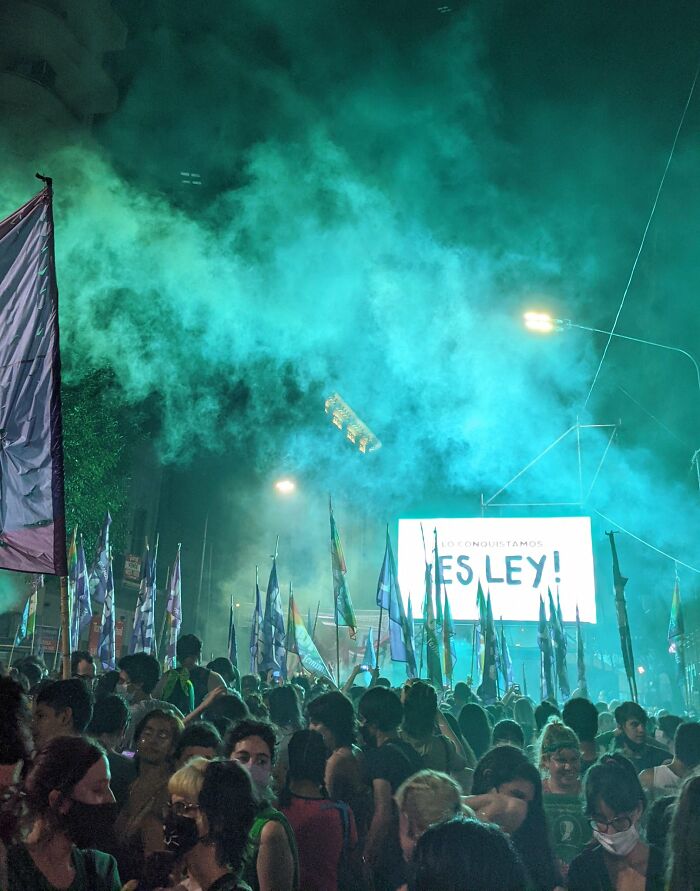







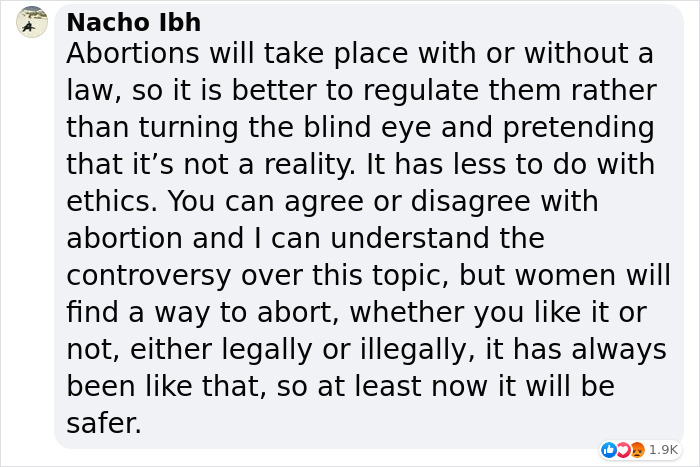
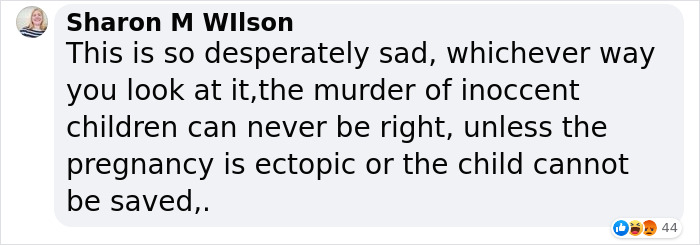





172
61